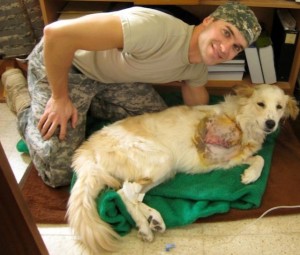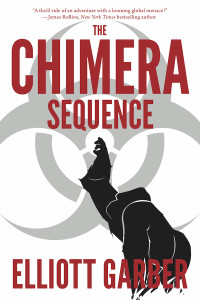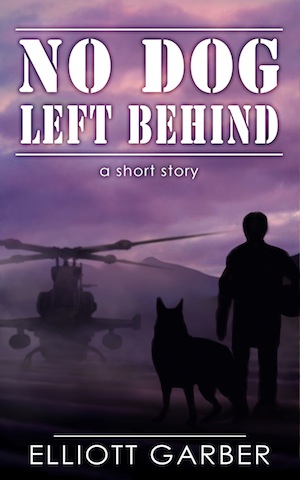 Welcome! This is where you’ll find links to some of my writing. Take a minute to enter your e-mail address in the box to your right. You’ll only hear from me when I’ve published something new.
Welcome! This is where you’ll find links to some of my writing. Take a minute to enter your e-mail address in the box to your right. You’ll only hear from me when I’ve published something new.
New Release: The Chimera Sequence
My full-length science thriller has finally been released! It was about three  years in the making, and I’m so excited to share it with the world.
years in the making, and I’m so excited to share it with the world.
You can buy it in print, audio, or digital on Amazon: The Chimera Sequence.
Cole McBride makes a chilling discovery while investigating a mysterious disease causing the deaths of endangered mountain gorillas in war-torn central Africa.
When a humanitarian aid hospital nearby diagnoses a disturbingly similar human case, the former Special Forces veterinarian knows he must figure out how to stop this outbreak from spreading–before it blows up into a global pandemic.
Halfway across the continent, a massive cargo ship moves out of Sudan’s largest port. Buried deep within its hold is one container of urgent significance for its buyer in the Persian Gulf.
And back in Washington, D.C., the owner of a Lebanese restaurant a stone’s throw from the White House finds a cryptic message in the Drafts folder of his e-mail inbox.
It’s one week before Independence Day, and an unpopular president is preparing to host America’s biggest celebration in years. There’s just one small problem: he’s not the only one with plans for the holiday.
With the woman he loves sick and close to death, Cole puts his own life on the line in a race against time to discover the truth behind the outbreak’s origin–a truth that will link it to one of humanity’s most ancient plagues and threaten the very heart of America.
This is how it happened.
I was fortunate to get endorsements from some of my favorite authors and veterinarians, so read on to let them convince you why my book is worth checking out:
“Elliott Garber’s debut thriller The Chimera Sequence has everything I love in a novel: great characters, a thrill ride of an adventure, and a looming global menace. But best of all, the story hooked me from the first intriguing page to the last illuminating line. I can’t wait to see what this guy writes next!”
—James Rollins, New York Times bestseller of the The Sixth Extinction
“As a Gorilla Doctor worried about viruses being transmitted from humans to gorillas and vice versa, I found The Chimera Sequence totally fascinating and accurate from a scientific standpoint. The setting genuinely captures the essence of fieldwork in the Virunga massif. Elliott Garber walks us through a scarily plausible plot as bioterrorism threats become more sophisticated and political tensions rise in the present day world. His detailed but easy-to-read style offers a thriller that will be compelling for fellow scientists and laymen alike.”
—Dr. Mike Cranfield, Co-Director of the Gorilla Doctors
“Animal lovers rejoice! Not since Jurassic Park has a science thriller of this magnitude been written just for us. While the story is filled with human characters you’ll hate to love and love to hate, the real heroes are an appealing supporting cast of mountain gorillas and working dogs. Don’t pick up my fellow veterinarian Elliott Garber’s book unless you’re ready for an adventure!”
—Dr. Marty Becker, “America’s Veterinarian” and New York Times bestselling author
“Elliott Garber has delivered a high-stakes thriller that will earn your attention with clean, clear prose and a solid grasp of global geopolitics. The Chimera Sequence is terrifyingly realistic, chock-full of research that rings as true as today’s headlines.”
—Bob Mayer, Former Green Beret and New York Times bestselling author
“I couldn’t put down Garber’s engaging, rapid-paced, action-packed thriller. His riveting first novel benefits greatly from his experience as an Army veterinarian who has worked with a variety of unlikely animals around the world. The book even features important appearances from a military dog, a Secret Service dog, and a tracker bloodhound. What’s not to love?”
—Maria Goodavage, New York Times bestselling author of Top Dog and Soldier Dogs
Please leave a review!
Word-of-mouth credibility is crucial for any author to succeed. Please consider leaving an honest review on Amazon (or any other site). Even if it’s only a line or two, it would make a big difference and would be very much appreciated.
No Dog Left Behind: A Short Story
 This short story was my first foray back into fiction writing since sometime in 7th grade! You can find a free preview of the story by clicking on the cover image on the Amazon page.
This short story was my first foray back into fiction writing since sometime in 7th grade! You can find a free preview of the story by clicking on the cover image on the Amazon page.
An Army Ranger dies and his courageous canine partner goes missing during what should have been a routine night raid in the mountains of Afghanistan.
Special Forces veterinarian Cole McBride joins a hardened group of spies and soldiers as they confront a terrible dilemma.
Will the strike team save themselves and escape from the tightening noose of enemy forces while they still have time? Or will they stay and fight to rescue the military working dog whose spirited heroism has already saved so many lives?
From U.S. Army veterinarian Elliott Garber comes a thrilling short story that illustrates the unique role of canine warriors as they work side by side with elite Special Operations troops to keep us safe.
This compelling tale of a military dog and his veterinarian is the perfect length for a lunchtime read or literary nightcap and will leave you begging for more.
“Garber’s No Dog Left Behind is the riveting and realistic story of a few hours in the life of an Army Veterinarian working with America’s most elite Military Working Dogs in Afghanistan. From the opening sentence to the final lines, your heart will be pounding for a German Shepherd named Solo and for the men who bravely serve beside him.”
– C. Alexander London, author of Dog Tags (Scholastic Inc.)
“I am in awe of this book! I have two words to say, ‘ENCORE, ENCORE!’ No Dog Left Behind is a beautifully written, captivating, and heartwarming story. I highly recommend it!”
– Nicole Arbelo, author of K9 Heroes
“No Dog Left Behind is an important short story peep into a U.S. Army Veterinarian’s compassionate actions to ensure the health and safety of a severely wounded American war dog hero in Afghanistan.”
– John C. Burnam, author of A Soldier’s Best Friend and Founder of the U.S. Military Working Dog Teams National Monument
Please Leave a Review!
New York Times Article
I wrote an article about the combat death of one of my military working dogs for the New York Times. You can see more pictures and read an excerpt in this blog post I wrote about it.
Thanks for reading!
Feel free to explore around the rest of the site. You might be interested in this series of articles about my experiences as an Army veterinarian. I hope you’ll also check out The Uncommon Veterinarian Podcast, where I interview veterinarians who are working in exciting and unique fields.

Comments
Just read your piece in NYTimes.com about Dimont. Sad sad story but you really salute the heroism of these military K9s and their handlers. Thanks from a former SF engineer and dog guy. De oppresso liber.
Thanks for your kind words — it’s great to hear from someone with your experience and history of involvement in the military.
It will be 3 years this coming Sunday that my son Marine dog handler Max Donahue was hit by an iED in Afghanistan. He lost both his legs and right arm. His dog, Fenghi, survived. she had found 4 IEDs earlier that morning but not the one Max was lying over. Even though the other dog handlers said Fenghi was not at fault, I’ve always been a bit angry at her.
Your explanation of how some IEDs go undetected by the dogs was the best explanation I’ve received. Thank you for making that horrific situation a bit more understandable.
BTW, The dog kennels at Camp Leatherneck are named Camp Donahue, after Max.
Again, thank you.
Julie Schrock
Proud Mother of Max and Ryan Donahue
Julie, thank you so much for sharing your story with us here. I know that other people wonder about this question too, so that’s why I wanted to clearly address it in my article. It makes a lot of sense that you would feel angry with Fenghi for missing that IED — I’m sure I would feel exactly the same way. I’m glad that my explanation helped bring a little clarity to your understanding of what happened.
Thank you for your family’s service and sacrifice for our country and freedom.
I just read your article in the NY TImes about Dimont. Sad story about Dimont but he saved lives. I am very interested in reading more stories about our heroes including the 4 legged ones. Thank you!
Thanks for your comment, Kim. There have been several popular non-fiction books released in the last couple of years that feature these stories. Check out Soldiers Dogs, K9 Heroes, Trident K9 Warrior, and Sergeant Rex for a good start.
Elliot Garber writes movingly about Dimont, but it begs the question of whether this dog should have been there in the first place. The American military has abused these dogs from the beginning. For example, virtually all the German Shepherds sent to Vietnam were ordered by the Pentagon to be abandoned in country. Hundreds of soldiers who became attached to their companion animals begged to bring their dogs home. But the animal cruelty prevailed. This policy changed recently, but the fact remains that these dogs did not volunteer for duty and they are put in harms way and die like Dimont. We salve our conscience by calling them heroes and erecting a monument or 2, but we have no right to exploit them this way in the first place.
Perhaps Dr. Wayne Johnson would like to volunteer to take the place of a Military Working Dog. Those dogs save lives. They allow our troops to search and secure larger areas with a higher degree of confidence. They are no longer simply being euthanized or “given” to the local populace. They are returned to their last duty station, or Lackland AFB, TX.
I suppose Dr. Johnson also feels that using ANY animal as a “tool” is wrong. So, no horseback riding. No dog sleds. No races. But, is it OK then to have them for pets? Did they ask to be pets? Who’s to say which they prefer? If they are like people, there will be a large variation in what each dog prefers. Some will like the slower pace and extreme comfort (well, usually) of being someone’s pet. Many others, though, will yearn for the excitement that one finds in a warzone.
To denounce their use in saving lives is irresponsible. What purpose do dogs and cats have in our society? If they cannot be “used” for “work”, why would you suggest that they can be “used” for “play”? Seems as though we’re all doing the same thing…using the animals for activities we see as appropriate for them.
When a dog is done with working, he lets you know. You can see him start to slow down, not react to the scents like he did previously, have less drive, not be as excited for the reward. So, those dogs must be removed from service and then tested to see if they can be rehabilitated or retrained for a different type of work. Consider that to be the same thing as unemployment insurance, and counseling by the unemployment office.
I’ve tried to be as nice as I can possibly be. But the bottom line is that I think that Dr. Johnson’s position is ill formulated and unsupportable, except in an emotional plea.
Thanks
Nearly RoadKill
Does “Nearly Roadkill” really mean to compare the lives of military dogs to the lives of the average dog or cat? Do American pets encounter a lot of IED’S in the course of a day. Do they return home with amputated limbs or headless? As for the comment that I am being “emotional”. For me the life (and death) of a nonhuman animal is an emotional issue. And anytime we work an animal to death as we did with millions of horses (anyone seen “War Horse”?) it is a cause for concern.
The heroism of the K9s and their handlers in Afghanistan is without a doubt a story that needs to be told. It is well worth noting that the Marines and elements of the Army are now using IED detection dogs off leash which gives greater standoff from the bomb.
John, you make a great point here. I know that Dinomt was on a long retractable lead when he got hit, but completely off-leash might be even better in a lot of situations.
I am a South-African K9 trainer that has worked with the US Army as a contractor since 2005 in Iraq and Afghanistan. This has been an honor working working with these soldiers.I have had numerous K9 partners and I think if they(k9) had a choice or a say in working here,they would jump up and be counted.They love what they do and would not change it for the world.
Thanks for this personal insight, Chris! And thank you for your service with our troops, human and canine, overseas.
I am a proud gsd owner and know their loyalty. I feel that it does behoove us all for them to be of service whether homeland or as part of the military. I ,too, am concerned about their treatment. The recent poisoning in Germany and the conditions that I have heard from both my brother and nephew first hand while in Afghanistan were shameful and appalling. We can treat these,yes, military heroes with more respect.
I agree, Jamie. As a veterinarian I feel a special responsibility to help ensure the welfare of the dogs who are serving us in so many different ways.
What happened to Solo? Did he survive? Did he find a home?
Thank you!
Hey Laura, thanks for asking! Just wanted to make sure you knew that this story is fictional. It’s based on what I know of military working dogs in war from my own work and deployments, but the details come from inside my own head. My full-length novel featuring Cole McBride is scheduled for release at the end of June, and you’ll learn more about what happened to Solo there!
You have a fantastic blog here! Would you like to make some guest posts on my site?